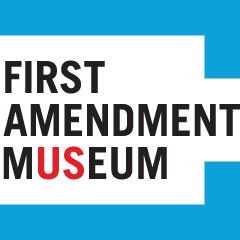2020 was a particulary turbulent year in American history.
During the winter, the COVID-19 pandemic gripped the nation. In the spring and summer, massive protests and social unrest erupted demanding justice for the killing of George Floyd and other victims of police brutality. During the fall, a very contentious election season ended in claims of election fraud and resulted in violent attempts to prevent Congress from validating the election and transfer power to the new president. Meanwhile, the COVID-19 pandemic rose to levels worse than ever over the holidays and the vaccination effort floundered.
2020 brought chaos, uncertainty, and dissatisfaction writ large across almost every spectrum of American society – perfect conditions for protest music to proliferate in almost every musical genre.
48. “Thoughts and Prayers” by Drive-By Truckers (2020)
Coming out in January of 2020, “Thoughts and Prayers” proved a very prescient song by the alt-rock band Drive-By Truckers. The song mocks the widely lambasted phrase “thoughts and prayers,” which critics of the phrase claim is usually uttered by so-called “slacktivists” after tragedies, especially mass shootings. Slacktivism is a pejorative term for those who express support or concern for a political or social cause but who commit as little time, effort, or involvement as possible. In the song, the phrase is rebuked by the lyrics which call upon the Trump administration to actively address the issue of mass shootings and gun violence in the United States.
49. “Imagine” by John Lennon, covered by various artists (2020)
Early into the COVID-19 pandemic of 2020, actress Gal Gadot assembled a group of celebrities, including Mark Ruffalo, Will Ferrell, Natalie Portman, Amy Adams, Kristen Wiig, Norah Jones, Jimmy Fallon, and more, to sing a cover of “Imagine” over FaceTime to the world. The iconic song, written by John Lennon in 1971, was used by Gadot and her ensemble to protest the maddening conditions that led to, and were fueled by, the pandemic. Gadot believed their rendition would inspire hope. Unfortunately, instead, their cover received instant backlash. Many perceived the video as out of touch considering that the singers were all well-off celebrities in large mansions singing about the benefits of no material goods in a time when many were losing their jobs and homes. The song was one of the largest failures in protest music history and is an interesting case study of the fine line privileged celebrities walk when creating protest music.
50. “Walking in the Snow” by Run the Jewels
“Walking in the Snow” is a protest song by hip-hop group Run the Jewels. It protests police brutality, authoritarianism, and the corruption of the American legal system. Run the Jewels is fronted by the rappers El-P and Killer Mike, the latter of whom is a long-time activist who gave an emotional speech to his fellow citizens of Atlanta, GA, during the George Floyd protests. The lyrics of the song are intensely violent yet the music video itself features cute, stop motion action-figure versions of Run the Jewels overthrowing a toy city that is oppressed by a brutal police force composed of other playthings.
Note: the link to the actual song is not listed due to its violent and explicit nature.
51. “Mr. Officer” by Tee Grizzley (2020)
In response to the murder of George Floyd by Minnesota police in May of 2020, rap artist Tee Grizzley wrote and recorded “Mr. Officer.” The song, which was released in June, is a plea to a fictional police officer in which Grizzley asks, “What if that was my brother? What if that was my dad? What if that was my uncle? What if they were all I had?” With the hauntingly beautiful vocals by Queen Niaja, the song goes on to state, “Y’all supposed to be the heroes though, you know, protect and serve, not takin’ us off of the Earth.” The song is a powerful and timely indictment of police brutality.
52. “March, March” by the Chicks (2020)
After the killing of George Floyd, the country band, formerly known as the Dixie Chicks, changed their name to simply the Chicks, dropping the word “Dixie,” which referenced the slave-owning Southern states in Antebellum America. They released the song “March, March” in June of 2020. The song is a tribute to social justice movements everywhere and references underpaid teachers, gun violence, Black Lives Matter, and more.
53. “Freeze Tag” by Dinner Party (2020)
“Freeze Tag” is Dinner Party’s lead single from their 2020 jazz album Dinner Party. Dinner Party is a collaboration of black musicians who came together in 2019 to record the eponymous album. It was released in July at the height of the social unrest following the killings of George Floyd and Breonna Taylor. The lyrics protest police brutality and the state-sanctioned violence which they see as endemic to American society. The music video takes place at a cookout in which, amidst the merriment of the occasion, depicted in full color, a black child is apparently shot. As the child falls, the music video turns black and white, ending with the grim imagery of police sirens bouncing off the trees and houses of a shadowy neighborhood.
Note: The link to the actual song is not listed due to its violent and explicit nature.
54. “Long Violent History” by Tyler Childs (2020)
One of the most surprising protest songs of 2020 came from roots, bluegrass, and country artist Tyler Childs, a musician whose songs often chronicle the plight of white working-class Southerners. In “Long Violent History,” Childs protests the killings of George Floyd and Breonna Taylor. The lyrics, such as, “it’s the worst that it’s been since the last time it happened,” express Childs’ belief that the United States has a “long violent history” towards black Americans. Many of Childs’ fans were upset with the song, forcing the artist to issue a six-minute-long explanation about his views and beliefs. The song is a great example of protest music from the bluegrass genre.
55. “Instant Night” by Beauty Pill (2020)
In 2015, the frontman for rock band Beauty Pill, Chad Clark, saw Ann Coulter predict Donald J. Trump would be the Republican nominee for president on Real Time with Bill Maher. Coulter was laughed at for her prediction at the time but Clark claimed, “I could feel she was right, Trump, though he was seemingly moronic and clownish, had tapped into a seething current of white rage and grievance and he would harness it to take him all the way.” The band then spent the next few years writing and developing the song “Instant Night” which was finally released in October 2020. The song protests the Trump presidency and the music video features images of Trump, Mitch McConnell, and other Republican figures being painted over to transform into symbolic animals.
56. “I Think I’m Good, the Movie” by Kassa Overall (2020)
“I Think I’m Good” is a concept album that seeks to demonstrate how large societal issues such as police brutality, the broken prison system, and the struggles of inner city life compound upon everyday personal issues such as break-ups, trust issues, coming of age, and mental health for many people. “I Think I’m Good, the Movie” is the music video that goes along with a compilation of music from the album. In the movie, a black delivery driver meanders his way through the distrust, awkwardness, and “new normal” of the COVID-19 pandemic, which only heightens the already tense racial situation in modern America. The music video is felicitous, darkly comical, uncomfortable, and a reminder that the individual participants of historical events often experience them on starkly more personal, even banal, terms than the grand generalizations through which we remember them.
57. “Not All Men” by Morgan St. Jean (2021)
In 2021, Morgan St. Jean released “Not All Men,” which was an instant hit. The “#MeToo” movement began in 2017 and is a social movement against sexual abuse, sexual harassment, and rape culture. The #MeToo movement has sought to bring sexists and abusers to justice. The song reflects the #MeToo Movement, which has resonated with listeners due to its powerful message and currently has millions of views. The artist believes that this is because such a large percentage of people have experienced some form of sexual harassment in their life, making the song relatable and meaningful for them.
Note: the link to the actual song is not listed due to its explicit nature.
Epilogue: The Future of American Protest Music (2021 – )
Protest songs have been woven into the fabric of American music since the nation’s inception. Music is one of the most striking forms of expression available. It is a tool that has, and will continue to be, harnessed to advance social causes, express discontent, and reflect national conditions. As more protest music is created and released, this online exhibition will be updated to include new examples.
Follow the First Amendment Museum on Instagram (@thefirstamendmentmuseum), Facebook (@firstamendmentmuseum), and Twitter (@1stAmendmntMus) for updates and news concerning this exhibition. Leave a comment and let us know what protest songs are your favorite and which, if any, you’d like to see added to this exhibit.

